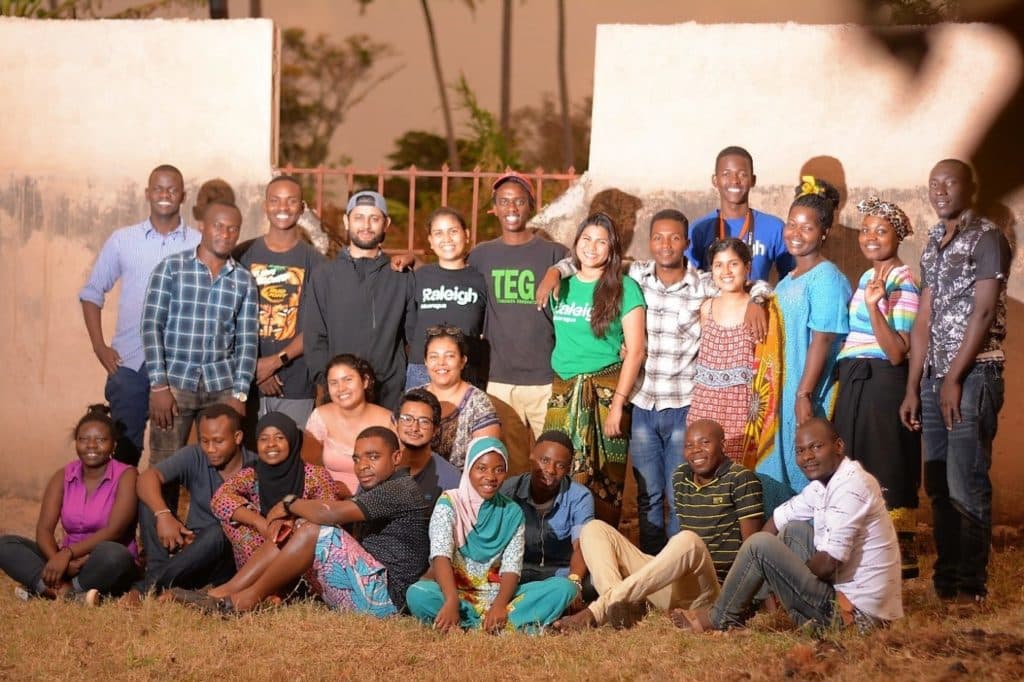Building the climate change resilience of Tanzanian communities
With the recent UN climate report stating that global warming will hit lower-income communities the hardest, it is now more important than ever to act on climate change to keep millions more people out of poverty.
As part of a new Raleigh Tanzania sustainable development project, 14 alumni from the Raleigh societies of Tanzania, Nepal, and Nicaragua are working towards assessing needs in rural communities in these countries, related to their resilience to climate change. The project – called ‘Exchange for campaigns, empowerment and leadership’ (ExCEL) and funded by Norwegian government body NOREC – will see young people lead the way in addressing the most pressing global challenges.
Here, they describe how they’ve planned for their community phase and reflect on their progress so far.
We have now left our base in Morogoro town to visit 9 communities in the districts of Kilosa, Kilombero, and Mufindi to assess how resilient these societies already are to global warming and how best they could tackle climate issues in the future. As the information we collect in these villages will be crucial for designing future campaigns, the techniques we use to collect information must be effective and thorough. Over the last couple of weeks, we have been working on improving our data collection methods, or needs assessment tools, through speaking to project partners and carrying out pilot surveys.
Having finalised climate change as the thematic focus of our project – specifically agriculture, forest, and energy issues – the team referred to data collected from formative research and decided on using interviews, observation, focus group discussions, and survey questionnaires, to obtain both qualitative and quantitative data from the communities we visit.
To collect data effectively, we divided the team into four groups so that more focus and time can be given to each tool. To further improve data collection, the Nicaraguan and Nepali volunteers among us have been taking Swahili lessons so we can better engage with communities over the next few weeks.
During this period, we met with three of the project’s stakeholders – Sokoine University of Agriculture (SUA), Sustainable Agriculture Tanzania (SAT), and Tengeneza Generation (TEG) – who helped us prepare for our community placements. Thanks to their in-depth knowledge of agriculture, forests, and energy usage in Tanzania, we were able to refine and tailor our assessment tools according to where we are visiting.

To test the accuracy and validity of the tools we had designed, we then conducted a pilot survey (translated in Swahili) in four different wards in Morogoro. While the lifestyle of people in Morogoro is not a precise representation of those in other areas of Tanzania, the pilot helped us to determine the amount of time we will need to factor in for interviewing village members; find out whether the phrasing of our questions was appropriate; and identify anything that needed to be added/removed from the survey. With the co-operation of people in Morogoro, the support of the local authority, and help from Raleigh Tanzania alumni, we were able to conduct a successful pilot in a short period of time.
We made further amendments to our assessment tools based on the results of the pilot and guidance from Raleigh head office and are now ready for our first placement in community. We have also been divided into three different teams and have been briefed about the villages we will be placed in.
Since placement will be a drastic change in our daily routines and a new opportunity to explore, we are all excited for our time in our respective communities. As much fun as we intend to have in the villages, we are equally keen to gather information effectively as it will determine the direction of our final phase here in Tanzania – designing and developing a campaign that will inspire youth to lead the way in the fight against climate change.
Written by the ExCEL team
Edited by Jessica Rowbury (Communications officer)